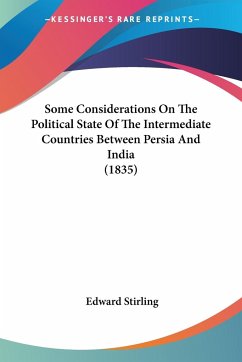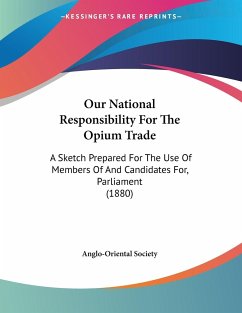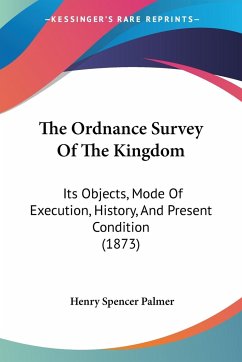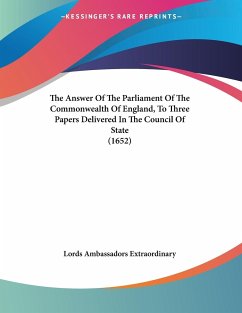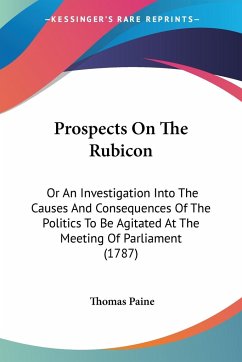
Prospects On The Rubicon
Or An Investigation Into The Causes And Consequences Of The Politics To Be Agitated At The Meeting Of Parliament (1787)

PAYBACK Punkte
10 °P sammeln!
Prospects On The Rubicon is a political treatise written by Thomas Paine in 1787. The book investigates the causes and consequences of the politics that were to be discussed at the upcoming meeting of Parliament. The title refers to the Rubicon River, which was famously crossed by Julius Caesar, symbolizing the point of no return. Paine argues that the political situation in England is similarly at a tipping point, with the potential for significant change and upheaval. He discusses the role of government, the rights of the people, and the need for reform. Paine's writing is characterized by h...
Prospects On The Rubicon is a political treatise written by Thomas Paine in 1787. The book investigates the causes and consequences of the politics that were to be discussed at the upcoming meeting of Parliament. The title refers to the Rubicon River, which was famously crossed by Julius Caesar, symbolizing the point of no return. Paine argues that the political situation in England is similarly at a tipping point, with the potential for significant change and upheaval. He discusses the role of government, the rights of the people, and the need for reform. Paine's writing is characterized by his passionate advocacy for democracy and his criticism of the aristocracy. The book was widely read and influential in its time and is still considered an important work in the history of political thought.This scarce antiquarian book is a facsimile reprint of the old original and may contain some imperfections such as library marks and notations. Because we believe this work is culturally important, we have made it available as part of our commitment for protecting, preserving, and promoting the world's literature in affordable, high quality, modern editions, that are true to their original work.



